Invited Speakers

Conference Announcement Submissions Invited Speakers Program
Keynote Speakers
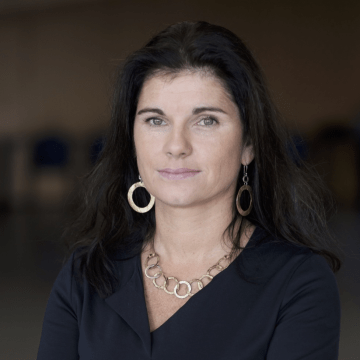
Agnieszka Jelewska
PhD, Professor at the Adam Mickiewicz University in Poznań, Poland, Deputy Dean of the Department of Anthropology and Cultural Studies, and director of Humanities/Art/Technology Research Center AMU. She has served as a visiting fellow at Kent University, Canterbury, UK. She held lectures and workshops at Mahindra Humanities Center at Harvard University, Emerson College Boston, Folkwang Universität der Kunst, Essen. Jelewska has authored and co-edited books Sensorium. Essays on Art and Technology (2012 in Polish), Ecotopias. The Expansion of Technoculture (2013 in Polish), Art and Technology in Poland. From Cybercommunism to the Culture of Makers (2014, as editor); and number of articles. She examines the transdisciplinary relations between science, art, culture, and technology in the 20th and 21st centuries, their social and political dimension. She is also a curator and co-creator of art and science projects: Transnature is Here (2013); Post-Apocalypsis (2015) – awarded a golden medal from PQ 2016; Anaesthesia (2016); PostHuman Data (2019).
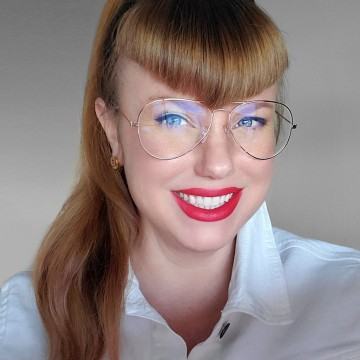
Amy Karle
She is a critically acclaimed, internationally recognized ultra-contemporary artist specializing in emerging and exponential technologies. She creates new, hybridized forms of art synthesizing physical, biological and computational systems. In her art-making practice, Karle employs exponential tech tools to create expertly crafted, emotionally engaging, intellectually stimulating artworks that offer a glimpse into the potential of technology to shape our future. Karle exhibits in prestigious museums worldwide including: Ars Electronica (Austria), Centre Pompidou (France), Contemporary Art Platform (Kuwait), FILE (Brazil), Media Arts Biennale (China), Mori Art Museum (Japan), Museum of Contemporary Art (Taiwan), The Smithsonian (USA), Triennale Milano (Italy), on the blockchain and in the metaverse. As a recognized thought leader, she is frequently invited to share her insights and innovations as an expert speaker and participant in think tanks. Karle was an Artist Diplomat to Poland through the U.S. Dept of State tasked with diplomacy, social innovation, women’s empowerment, and supporting cross disciplinary collaborations using art and technology to address social issues. She was honored as one of BBC’s 100 most inspiring and influential women in the world. www.amykarle.com
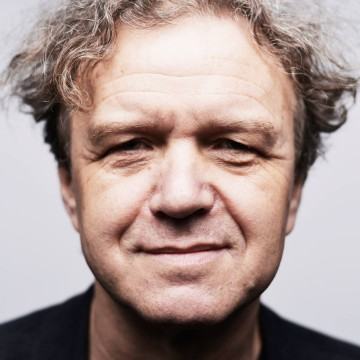
Ryszard W. Kluszczyński
PhD, Professor, media art scholar, writer and curator.
Chair of Department of New Media and Digital Culture, University of Lodz, Poland. Professor at the Academy of Fine Arts in Lodz. Investigates the issues of new media arts and cyberculture, contemporary art theory and practices, avant-gardes, transdisciplinary cultural transformations, and recent interactions between art, science, technology and politics.
Artistic Director of Art + Science Meeting Program in the Centre for Contemporary Art in Gdansk (2011–). Chief Curator of Film, Video and Multimedia Arts in the Centre for Contemporary Art – Ujazdowski Castle in Warsaw (1990-2001).
Some of his recent book publications: Towards a Non-Anthropocentric Ecology. Victoria Vesna and Art in the World of Anthropocene (2020); Beyond Borders: Processed Body – Expanded Brain – Distributed Agency (2019); Augmenting the World. Masaki Fujihata and Hybrid Space-Time Art (2017).
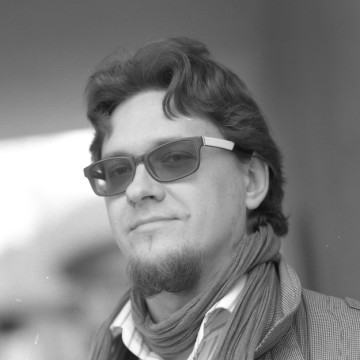
Vytautas Michelkevičius
PhD, Professor, curator, writer and researcher whose focus was gradually shifting from photography in expanded field to media art & theory and lately to artistic research in academia and beyond. He is teaching art practice & research and theory BA, MA and DA/PhD students in Vilnius Academy of Arts and internationally. He served as artistic director of Nida Art Colony (2010-2019). Since 2019 he is the head of Photography, Animation and Media Art Department and Doctoral Programme in the Arts in the same academy. Since 2016 he is actively working internationally with DA/PhD students, supervising them, running courses, curating expositions and also doing interdisciplinary inquiry on "artistic research". He published the first book on artistic research from Central-East European perspective ("Mapping Artistic Research. Towards Diagrammatic Knowledge" (2016 LT, 2018 ENG). Among recent book are "Atlas of Diagrammatic Imagination" (together with Lina Michelkevičė, 2019); Impact of Artistic Research on Humanities and Contemporary Art (together with Aldis Gedutis, 2023/2024). He has curated numerous artistic research symposiums and exhibitions, among them Lithuanian Pavilion in Venice Biennale (Dainius Liškevičius project "Museum"), Ars Electronica Vilnius Garden 2020, and Campus exhibition at Ars Electronica, Linz, 2022. https://vilnius.academia.edu/VytautasMichelkevicius
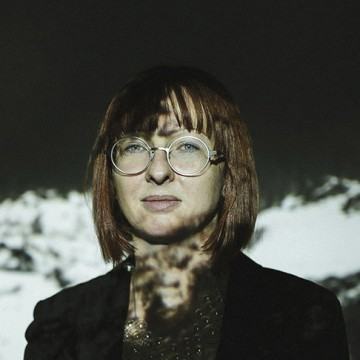
Theresa Schubert
Schubert is a Berlin-based artist, researcher and curator exploring unconventional visions of nature, technology and the self. She holds a PhD in Media Art from Bauhaus-University Weimar. Her practice combines audiovisual and hybrid media to conceptual and immersive installations or performances. More recently, she works with immersive video environments and 3D Laser Scanning to challenge modes of perception and question the human-machine relationship in hypertech societies where the nature-culture divide seems to dissolve in the digital realm. Her work has been exhibited, among others, in: Ars Electronica, Linz, Art Laboratory Berlin, KW Institute for Contemporary Art Berlin, Newcastle Region Art Gallery, Electro Fringe Festival Australia. In WS 2018-19 she was Guest Professor at the Bauhaus-University Weimar. She is the co-publisher of "Membranes Out Of Order" (2023) and curated „Stories for more-than human worlds" (2018), „Inoculum - Connecting the Other" (2016) and Co-Curated "Shared Habitats / Bauhaus 100" at Ars Electronica 2019. Her work has received numerous awards, including the Award of Excellence at the Japan Media Arts Festival 2022 (Art Division), a Prix Ars Electronica Honorary Mention (AI & Life Art 2021) and the NTAA (New Technological Art Award) 2016. She is a Longlist for the Lumen Interactive Art Award 2022, Longlist Aesthetica Art Award 2023 and has been nominated for the GASAG Kunstpreis by Berlinische Galerie 2016 and 2018. https://www.theresaschubert.com
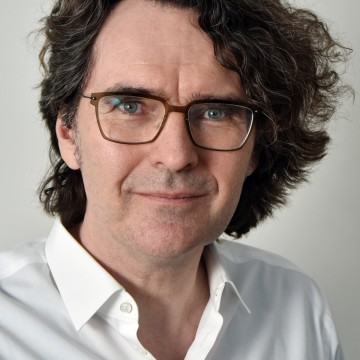
Lambert Wiesing
PhD, Professor, born 1963. Study of philosophy, art history and archaeology at the University of Muenster.
1989 Promotion, 1996 Habilitation in philosophy. 2001 Appointment to Professor for Comparative Picture Theory in the Media Science at the University of Jena. 2005 Election to the position of President of the German Society for Aesthetics. 2005 - 2008 Visiting Professor at the University of Vienna, Oxford and Dartmouth College, USA. 2015 Aby Warburg Science Prize awarded by the Aby Warburg Society. 2018 Thuringian Science Prize for Basic Research. 2019 to 2021 President of the German Society for Phenomenological Research. 2021 Award of the Marsilius Medal for special services to the dialogue between scientific cultures by the University of Heidelberg. 2022 International Annual Meeting of the German Society for Phenomenological Research in Jena Back to the Things Themselves. The Practice of Phenomenology.
Recent publications:
1. Die Sichtbarkeit des Bildes. Geschichte und Perspektiven der formalen Ästhetik, Reinbek bei Hamburg: Rowohlt Taschenbuch Verlag 1997 und Frankfurt am Main: Campus-Verlag Juni 2008;
2. Das Mich der Wahrnehmung. Eine Autopsie, Frankfurt am Main: Suhrkamp Verlag 2009 und Berlin: Suhrkamp Verlag 2015;
3. Sehen lassen. Die Praxis des Zeigens, Berlin: Suhrkamp Verlag 2013, 2. Auflage 2013;
4. Luxus, Berlin: Suhrkamp Verlag 2015, 2. Auflage 2017;
5. Ich für mich. Phänomenologie des Selbstbewusstseins, Berlin: Suhrkamp Verlag 2020.
Plenary Speakers
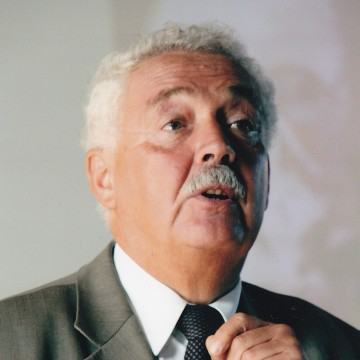
Adam Jezierski
PhD, Professor. Born in 1948 in Kalisz. PhD (chemistry) at the University of Wrocław - 1978, post-doc at Leicester University (England) 1980, academic title - professor (chemistry) - 1995.
1990-96 and 1999-2005 vice-dean of the Faculty of Chemistry. 2008 elected Vice-Rector of the University of Wrocław for Science and International Cooperation for two terms (2008 - 2016). 2016 elected Rector of the University of Wrocław (until 2020).
Author of 150 papers (in English) devoted to the electronic structure of coordination compounds, properties of biological membranes, ecology (especially the structure of organic matter in soil), modern surfactants, free radical chemistry, color characteristics and magnetic centers in minerals.
Invited to international conferences and universities (Berlin (Freie U.), Cologne, Bielefeld, Oldenburg, Moscow, Saint-Petersburg, Cardiff, Florence, Wuhan and others). Scientific cooperation with scientists from Bradford University (England), Georgia University (USA), University of Texas at San Antonio, Rehovot (Israel). Member of the scientific councils of the international conferences "Metals in the Environment" and "Application of Resonance Spectroscopy". Citation index - over 1000 citations. Organizer of the Interdisciplinary Seminar "Studium Generale Universitatis Wratislaviensis" (1992 - present). Hobbies: collecting minerals, classical philosophy, romantic music.
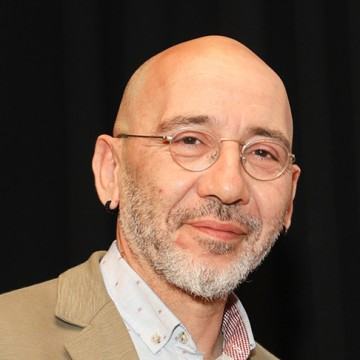
Mehmet Kahyaoğlu
PhD, Art Historian. After receiving undergraduate degree in mining engineering at Dokuz Eylül Uni., İzmir in 1986 and three years of professional experience, he decided to change the track of his life and carried on his studies on art history at Ege University where he received BA (1997), MA (2001) and Ph.D (2010). He studied iconography for the master thesis and medieval maritime trade in the Aegean Sea for Ph.D at the Department of Byzantine Art. After an experience of being the manager of the Art Center of Metropolitan Municipality of Izmir (2000-2002), he started his academic career at the Dokuz Eylül University Faculty of Fine Arts (2002-2010) and continued his academic career at Yaşar University (İzmir) since 2010.
At Yaşar University, he was the head of Art and Design Graduate Programs between 2012-2015 and 2021-2023 and he was Vice-Dean of Faculty of Art and Design between 2013-2017. He has been giving courses on art history, iconography, mythology, visual culture, contemporary art and cultural history of gastronomy. He has been quite active in EU projects in the fields of art, culture and education. He coordinated a Jean Monnet module entitled “An experience of multi-cultural co-existence: Art and culture as a means of EU integration and co-existence” between 2015-18.
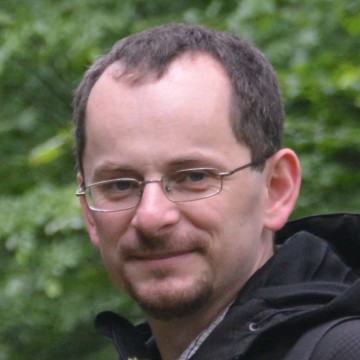
Paweł Polak
PhD, Professor of philosophy at Pontifical University of John Paul II in Krakow, chair of History and Philosophy of Science, vice-president of the Commision on Philosophy of Sciences at Polish Academy of Arts and Sciences, member of Commission on the History of Science of the same academy; Member-expert of Committee for the History of Science and Technology, Polish Academy of Sciences. Editor-in-chief of periodical “Philosophical Problems in Science (Zagadnienia Filozoficzne w Nauce).” His interests in philosophy include the cultural roles of technoscience, technoscience-faith relations, and philosophy in technology. He conducts research on the role of visual factors in scientific research, and is particularly interested in methodological, epistemological and knowledge transfer issues.
Published in „Science and Theology,” “Studies in Logic, Grammar and Rhetoric,” “Studia Historiae Scientiarum,” “The Philosophy of Science/Filozofia Nauki.”
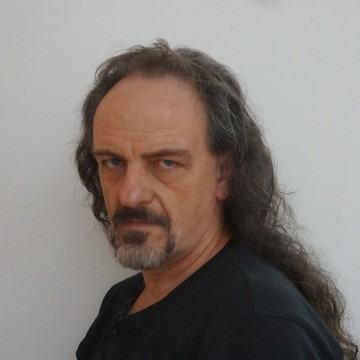
Artur Tajber
PhD, Professor. Intermedia artist and performer, writer and theoretician, composer, art organiser, freelance curator. Professor at the Faculty of Intermedia, Department of Art Phenomena (head), Master Studio of Notional Art – Jan Matejko Academy of Fine Arts in Krakow. Since 2007, he has also been teaching the subject of Performance Art at the Jagiellonian University.
He has been presenting his work to the public since 1974. At the end of the seventies he started organisational, curatorial and union activities and travelled abroad, mainly to France. In 1980, he returned to Poland and began working with the Board of the NSZZ Solidarity. During martial law he was one of the four founding members of the KONGER performance art formula and began working at the Department of Visual Arts of the Faculty of Industrial Design at the Academy of Fine Arts in Krakow. At the end of the 1980s, he became involved in the reactivation of ZPAP, founded and ran the gt gallery in Krakow; from 1989 he was vice-president of the ZPAP District Board and artistic director of the Pryzmat Gallery. In the second half of the 1990s, he was elected president of the Art Fort Association and continued his artistic and curatorial activities in Poland, Norway, Canada, Ireland and many other countries in Europe, Asia and the Americas, where he also presented his own work, mainly in performance art and Intermedia. Co-author of the unique curriculum in Intermedia and head (2007-2012) and then dean of the Faculty of Intermedia for two terms (2012-2020).
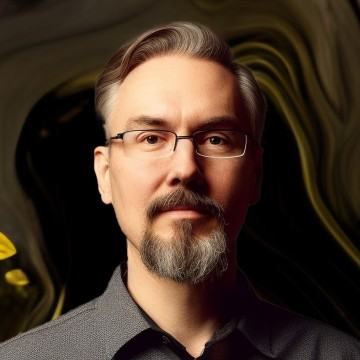
Andris Teikmanis
PhD, Professor. Born on February 5, 1967, is a Latvian professor and academic leader. He currently serves as the Chairman of the Council of Higher Education of Latvia and the Head of Professional Doctoral Study Programme in Visual Art and Design at the Art Academy of Latvia where he also has his professorship in Art and Research, Semiotics of Visual Culture, and Art History. His previous roles include Vice-Rector of the Art Academy of Latvia and a member of the Horizon 2020 Societal Challenge 6 Programme Committee.
Teikmanis has been involved in various networks and memberships, including the Association European League of Institutes of the Arts (ELIA), the Council of Cultural (Art) Education of Latvia, and the Fine Art European Forum: Paradox. He has also contributed to numerous publications and conferences, presenting papers on topics such as "Toward New Knowledge Model of Artistic Research" and "Toward Three Models of Visual Cognition in Artistic Research."
He has represented the Art Academy of Latvia in the ELIA SHARE project, making contributions in the field of typologies of research models. He has been involved in numerous exhibitions and art projects, notably the ART FUTURE / FUTURE SIGNS project from 2014 to 2023, which included a series of exhibitions, workshops, and conferences.
Currently, Teikmanis is exploring the intersection of artistic research and artificial intelligence, working on innovative projects that aim to bridge the gap between these two fields.
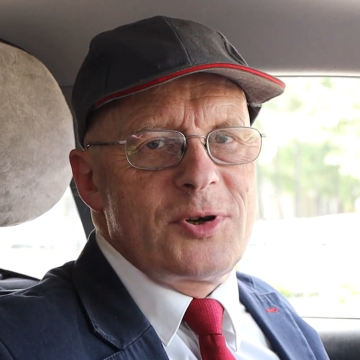
Piotr Zieliński
PhD, Professor. Graduated from the Jagiellonian University in physics and from the Music School of the Second Degree in Cracow. Research fellow, visiting professor and teacher at the University of Vienna, Austria, University of Atnwerp, Belgium and, for the longest term, at the University of Sciences and Technologies I, Lille, France. Employed at the H. Niewodniczański Institute of Nuclear Physics of Polish Academy of Sciences. Works on orientationally disordered crystals, surface dynamics, ferroelastic domain textures and wave phenomena in various systems, e.g. pulse waves in arteries. Teaches, among others, continuum mechanics, group theory, physics and physiology of sound at the Cracow University of Technology. Passionate about interdisciplinary studies, e.g. diplomas supervised in 2023: nonlinear viscoelasticity of tennis balls (technical physics), sound of isospectral Kac drums (applied mathematics), short acoustic pulses vs. uncertainty principle (PhD thesis, in progress). Member of the Regional Board of Polish Physical Society and of the Committee on the Philosophy of Sciences of the Polish Academy of Arts and Sciences.
Conference Announcement Submissions Invited Speakers Program
